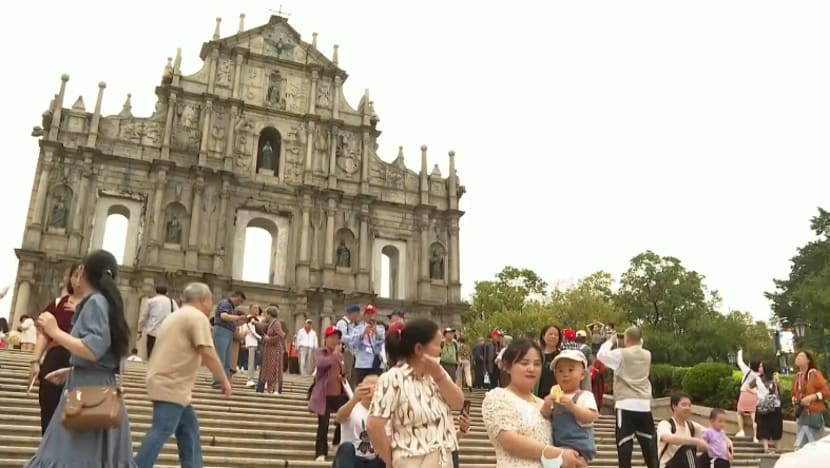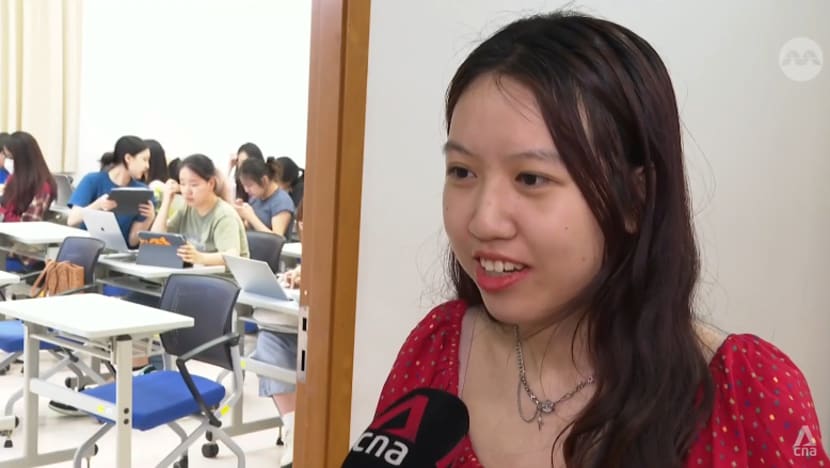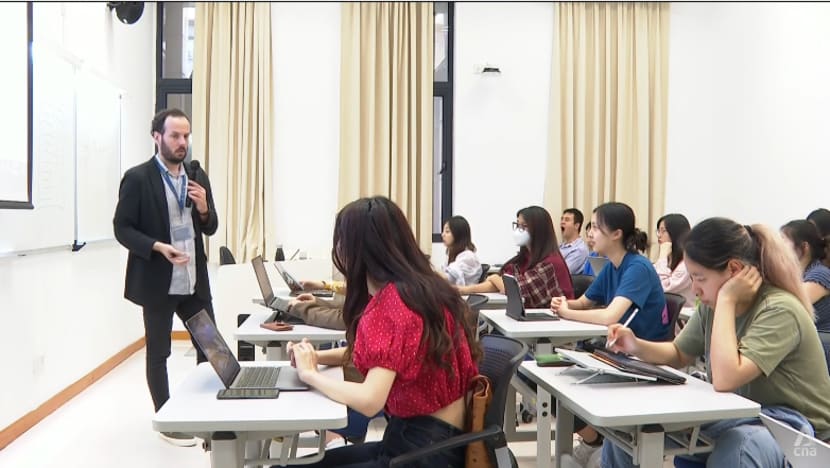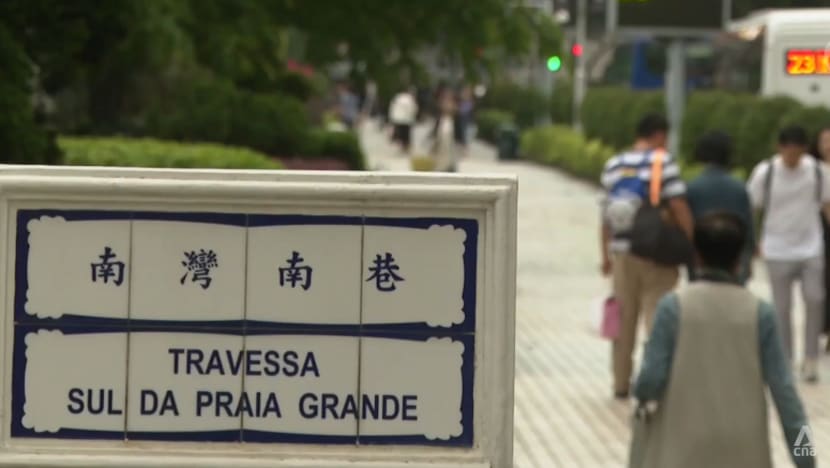Portuguese language increasingly popular in Macao as city sharpens bilingual edge
As Macao seeks to diversify its economy beyond the gaming sector, Portuguese could give the city an edge in wooing businesses.

Visitors at the Ruins of Saint Paul's, formerly the site of a 17th-century Portuguese church, in Macao, China. It is part of the Historic Centre of Macao, a UNESCO World Heritage Site.
MACAO: Macao, a former Portuguese colony, has long been seen as a gateway between China and Portuguese-speaking nations.
There may be fewer native Portuguese speakers in the city after its handover in 1999, but more Chinese are now picking up the language.
As Macao seeks to diversify its economy beyond the gaming sector, Portuguese could give the city an edge in wooing businesses.
MORE STUDENTS LEARNING PORTUGUESE
Schools have reported a marked increase in the number of students enrolling in Portuguese classes in recent years.
At the University of Macau, about 1,000 students are learning the language, with some picking it up through electives such as business law.
Mainland students outnumber local students.
“Many students choose Portuguese as a subject as they consider the professional opportunities. This could bring them into fields like business, diplomacy, and trade in general,” said Professor João Veloso, head of the university’s Portuguese department.
Students CNA spoke to said they hope to eventually work in fields that would require them to communicate with Portuguese-speaking nations.
“Brazil has many big opportunities for us commercially, and China is a big market for Brazil. That is why I want to devote myself to this area,” said Ms Winnie Zeng, an exchange student from Beijing who is completing a one-year exchange programme at the university as part of her Portuguese Degree.

Another exchange student Christina Yu, who is working towards a diplomatic career, said: “I want to have a job in a government organisation and use foreign languages like English or Portuguese to communicate with other countries.”
PORTUGUESE-SPEAKING BUSINESSES
Macao’s edge in the Portuguese language is already drumming up interest on the commercial front.
At Beyond Expo, one of the biggest technology events in Macao, nine Portuguese and Brazilian start-ups that mainly focus on biotech and medtech, were present to court Chinese investors.
These firms are hoping to make inroads into the massive China market, and are looking at Macao as a gateway.
“In Macao, people speak Portuguese, English, Cantonese, and Mandarin. (As part of) the Greater Bay Area, we have eight times the GDP (gross domestic product) of Portugal. The opportunities are there,” said Mr Carlos Alvares, president of the Portugal-China Chamber of Commerce & Industry.
The lucrative Greater Bay Area consists of nine cities and two special administrative regions including Macao, and accounts for about 12 per cent of China’s GDP.

Local consultancy firm Perfeicao, which helps Chinese and Portuguese firms break into new markets, said the number of deals have gone up three times since Macao reopened its borders at the beginning of this year.
“Right now, China exports a lot of services and new technologies,” said Mr João Li, director of the firm’s Portugal office.
“We received a delegation comprising the top 500 companies from Brazil. They were looking for internet and technology companies such as Jingdong, Baidu, and Tencent (to find out) how to create a shared economy.”
EXPANDING STRATEGIC PARTNERSHIPS
These exchanges are also part of a bigger political shift as China eyes strategic partnerships in the West and beyond, amid soaring tensions with the United States.
In April, China and Brazil pledged to work together in international finance and fair development.
That same month, Macao’s Chief Executive Ho Iat Seng met with Portugal's leaders to discuss bilateral trade.
“China is one of the biggest countries in the world in terms of demography, and one tiny place in China that has Portuguese as an official language, it has to make a difference,” said Prof Veloso.

Chinese and Portuguese are the official languages in Macao and both are used in government documents and communications.
Trade between China and Portuguese-speaking countries grew about 6.2 per cent to hit nearly US$215 billion in 2022.
With Macao continuing to sharpen its bilingual edge, observers say this upward trend in trade and diplomacy could well stay the course.


















